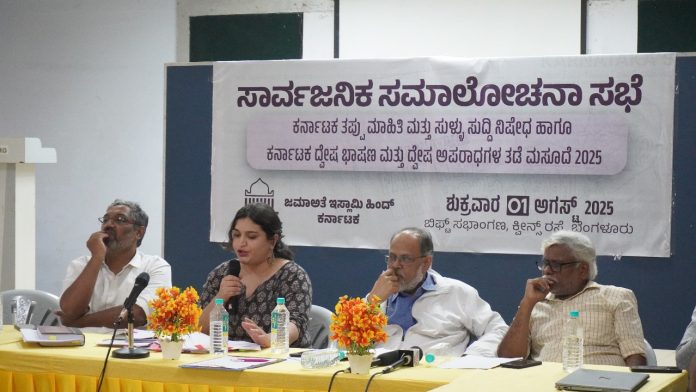– Mohammed Talha Siddi Bapa
Bengaluru: In a move that underscores the role of civil society in democratic governance, Jamaat-e-Islami Hind (JIH), Karnataka, took the initiative to organise a public consultation on two significant draft legislations: the Karnataka Misinformation and Fake News (Prohibition) Bill and the Karnataka Hate Speech and Hate Crimes Prevention Bill, 2025. The public meeting, held at BIFT Auditorium on Queens Road here brought together legal experts, social thinkers, journalists, and activists to critically examine the drafts and demand greater transparency and citizen participation in the lawmaking process.
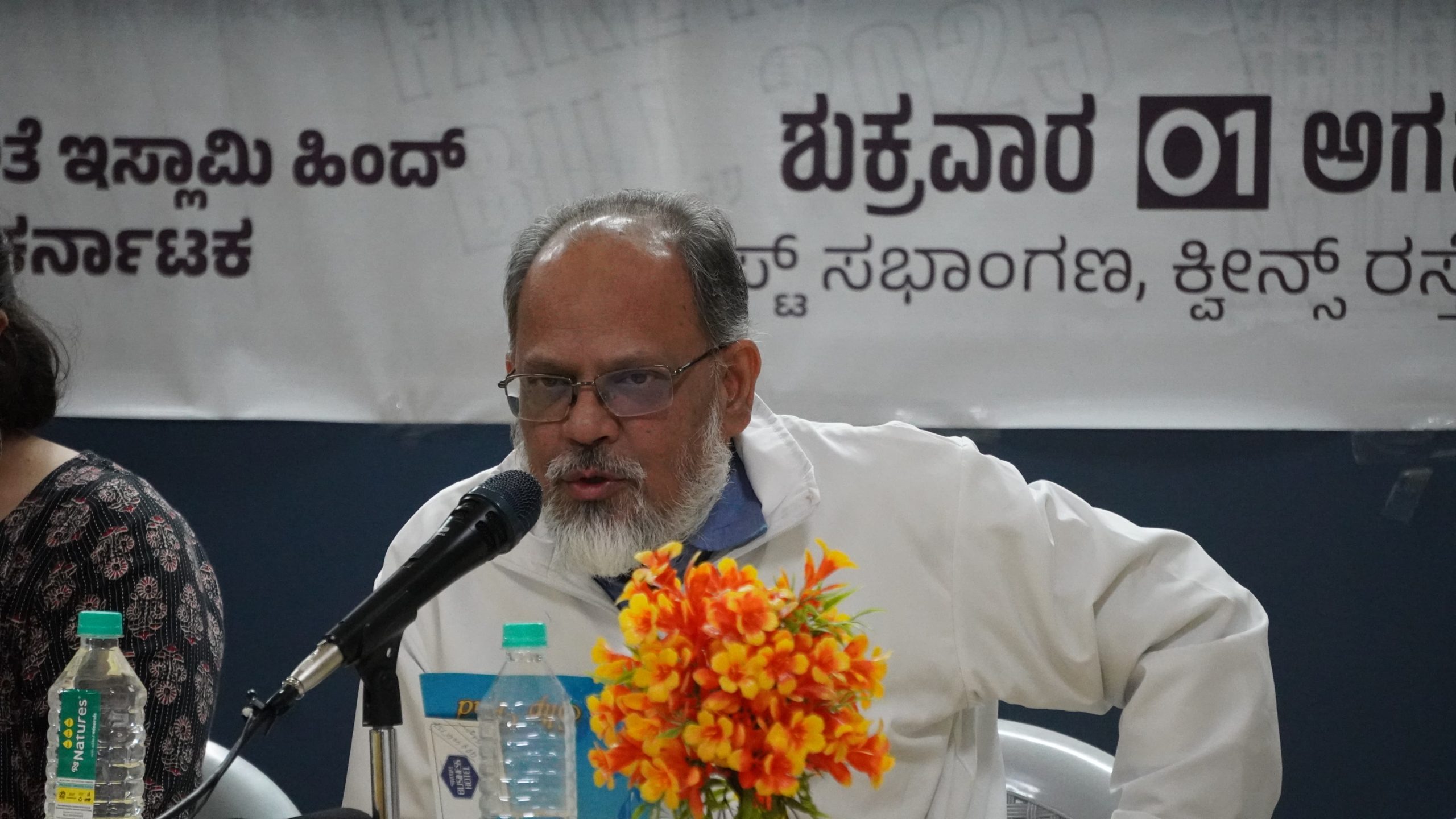 At a time when the state government is reportedly considering these legislative measures, JIH’s initiative to facilitate democratic dialogue stands out. Ideally, such a consultative process should have been spearheaded by the government itself. Laws that are intended to govern society must reflect the collective will and lived realities of the people.
At a time when the state government is reportedly considering these legislative measures, JIH’s initiative to facilitate democratic dialogue stands out. Ideally, such a consultative process should have been spearheaded by the government itself. Laws that are intended to govern society must reflect the collective will and lived realities of the people.
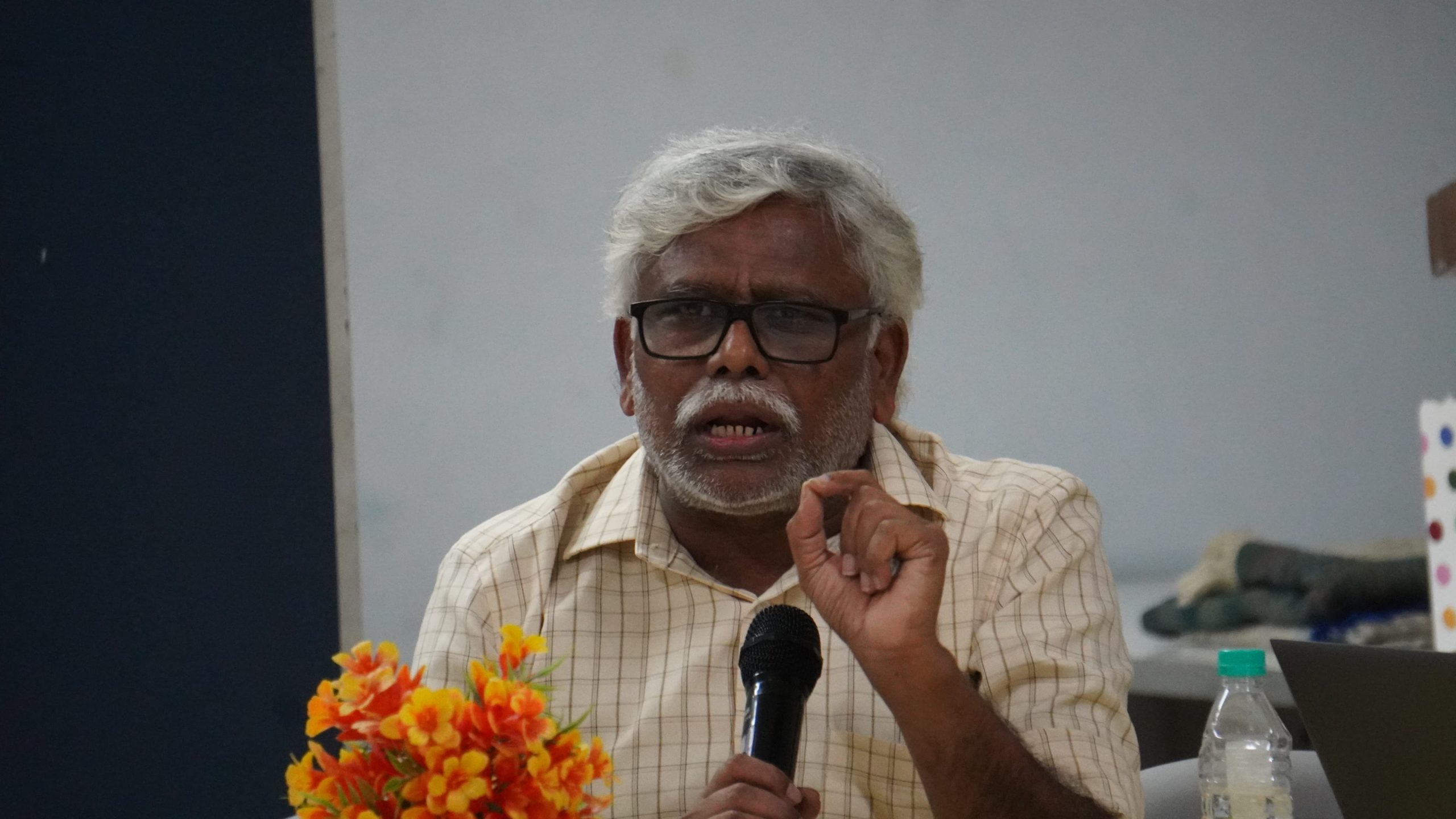 In the absence of official public hearings, JIH Karnataka’s intervention aims to ensure that any proposed legal framework upholds constitutional values and democratic traditions and protects vulnerable communities from both state overreach and social harm.
In the absence of official public hearings, JIH Karnataka’s intervention aims to ensure that any proposed legal framework upholds constitutional values and democratic traditions and protects vulnerable communities from both state overreach and social harm.
Speaking at the event, prominent social thinker Shivasundar emphasised the urgency of addressing the surge in hate speech and misinformation, particularly since 2014.
“The spread of fake news and hate speech has intensified in the age of social media, often supported by state rhetoric and media complicity,” he said, citing recent statements by national leaders that have raised concerns among civil society groups. However, he cautioned that legal remedies alone are not sufficient. “While legislation may serve as a deterrent, real change requires awareness, civic engagement, and movements that challenge deep-seated social prejudices,” he noted.
Advocate Vinay Sreenivasa questioned the ambiguity surrounding the status of the draft bills and warned against provisions that might threaten freedom of speech.
“The government must ensure that any new law does not encroach upon constitutional liberties. Public consultation is essential before enacting such sensitive laws,” he asserted.
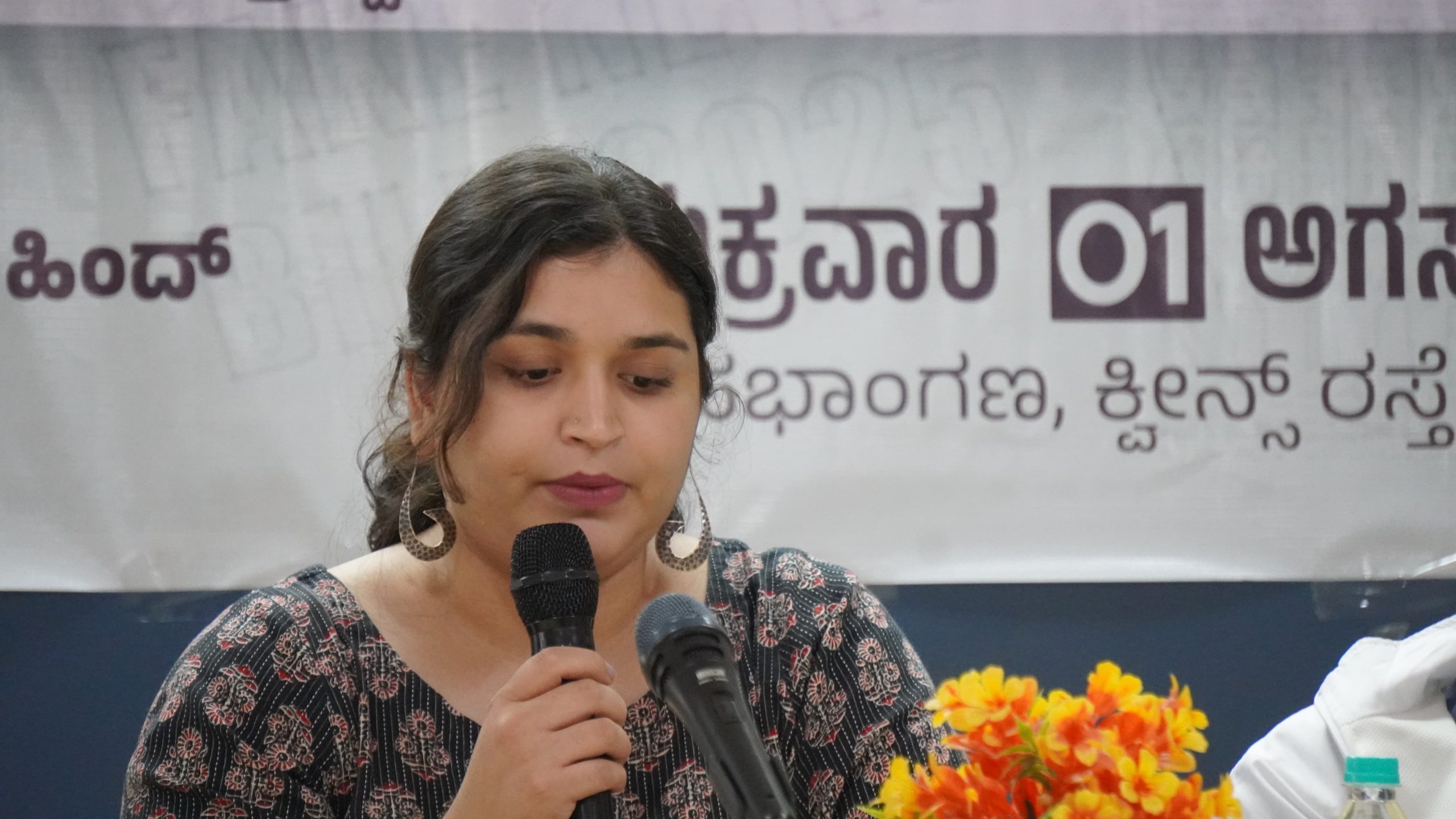 Activist Manavi Athri raised critical concerns about the excessive powers granted to police authorities in the draft bill and urged the government to learn from existing judicial precedents like the Tehseen Poonawalla case.
Activist Manavi Athri raised critical concerns about the excessive powers granted to police authorities in the draft bill and urged the government to learn from existing judicial precedents like the Tehseen Poonawalla case.
“There are already laws in place to curb hate speech. The challenge lies in implementation, not absence,” she argued.
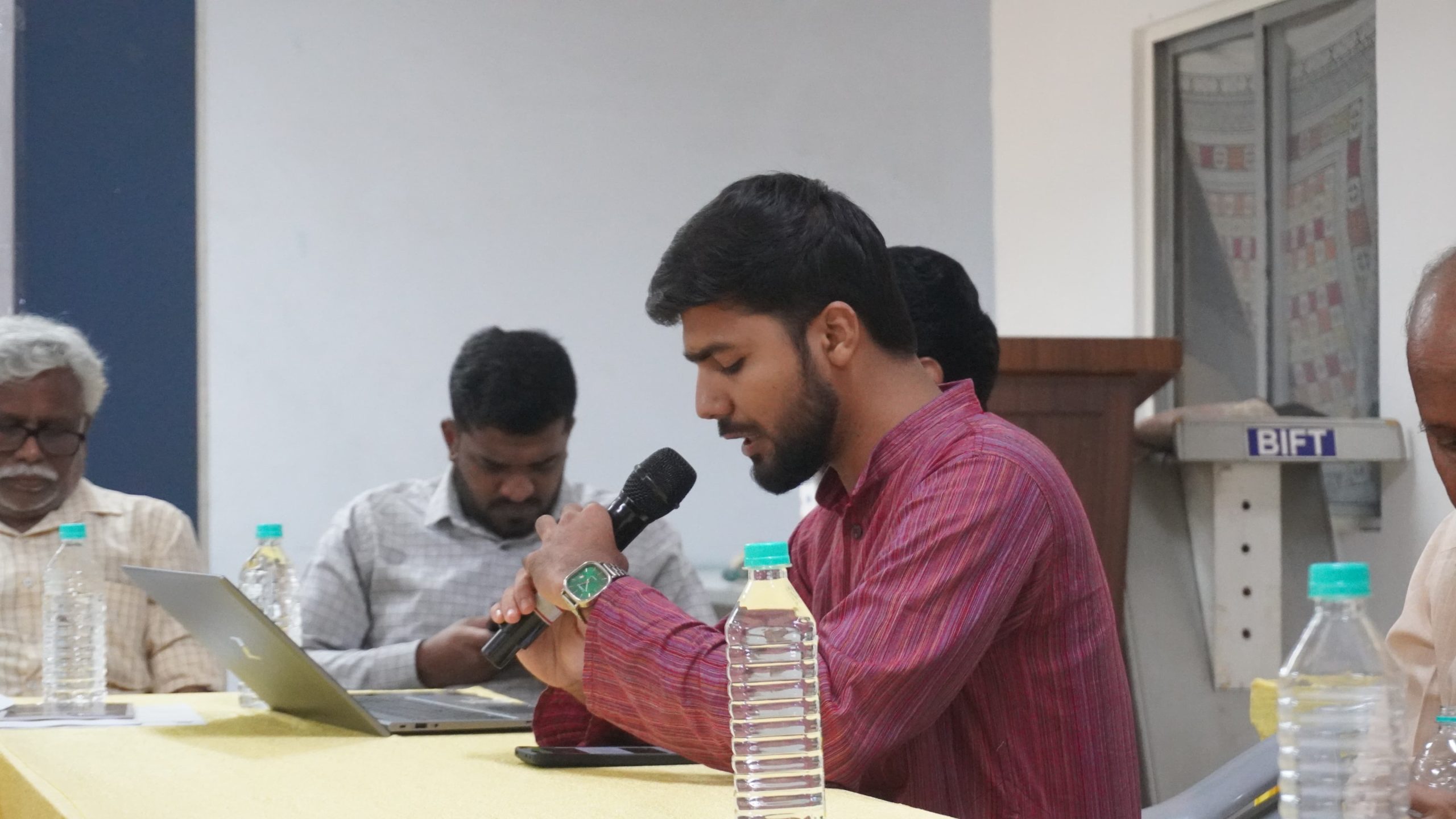 Veteran journalist Harshakumar Kugwe criticised the role of partisan media in amplifying hate narratives. Referring to the communal targeting during the COVID-19 pandemic and recent incidents in coastal Karnataka, he called for the formation of an independent fact-finding body composed of retired judges and senior officers to monitor and advise on such issues.
Veteran journalist Harshakumar Kugwe criticised the role of partisan media in amplifying hate narratives. Referring to the communal targeting during the COVID-19 pandemic and recent incidents in coastal Karnataka, he called for the formation of an independent fact-finding body composed of retired judges and senior officers to monitor and advise on such issues.
In his presidential address, Dr. Muhammad Saad Belgami, President of JIH Karnataka, reiterated that combating hate requires both legal instruments and social healing.
“It is not enough to legislate; we must also build bridges of love and trust in society. The objective is not merely punishment, but social transformation,” he said.
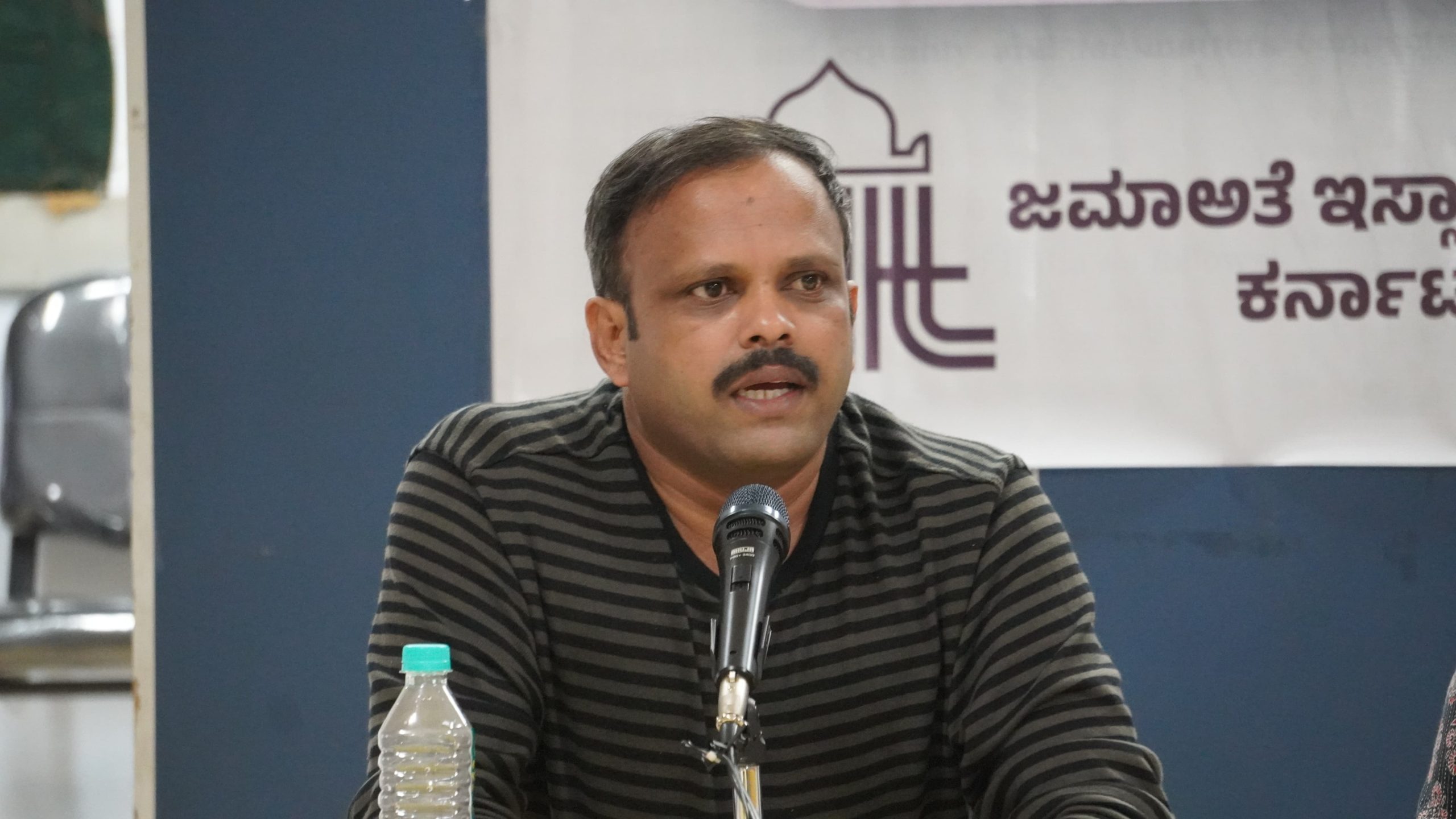 Quoting the Qur’anic verse from Surah Al-Hujurat (49:6), “Believers, when an ungodly person brings to you a piece of news, carefully ascertain its truth, lest you should hurt a people unwittingly and thereafter repent at what you did,” he stressed that verifying information before circulating it is not just a civic duty but a moral and religious responsibility. This verse, he noted, offers timeless guidance for an age riddled with fake news and misinformation.
Quoting the Qur’anic verse from Surah Al-Hujurat (49:6), “Believers, when an ungodly person brings to you a piece of news, carefully ascertain its truth, lest you should hurt a people unwittingly and thereafter repent at what you did,” he stressed that verifying information before circulating it is not just a civic duty but a moral and religious responsibility. This verse, he noted, offers timeless guidance for an age riddled with fake news and misinformation.
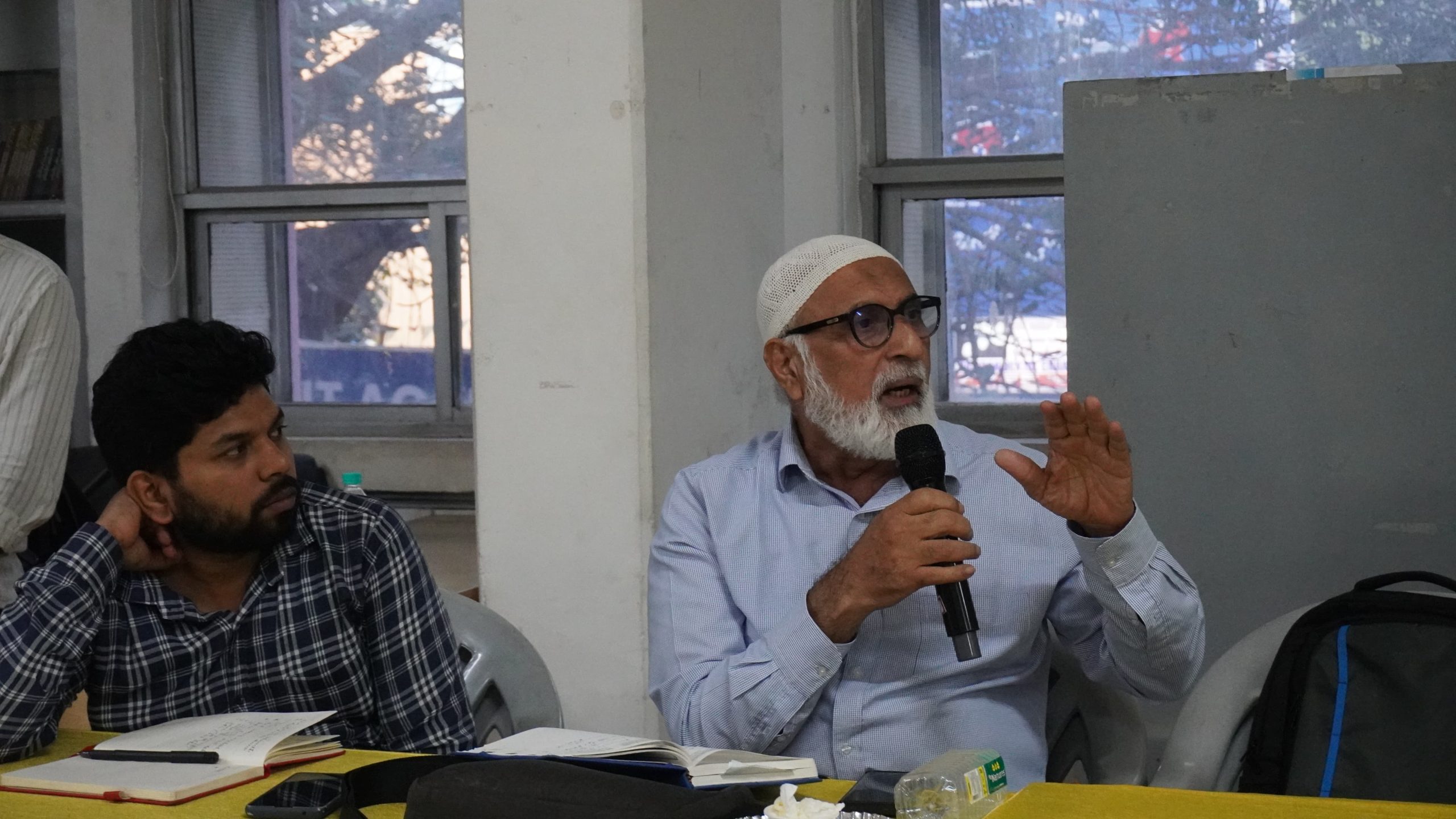 Adi Al Hasan, State President of the Students Islamic Organisation (SIO), and Akbar Ali Udupi, PR Secretary of JIH Karnataka, were also present. The session included an open dialogue moderated by Muhammad Peer Latgeri, with support from Riyaz Koppal.
Adi Al Hasan, State President of the Students Islamic Organisation (SIO), and Akbar Ali Udupi, PR Secretary of JIH Karnataka, were also present. The session included an open dialogue moderated by Muhammad Peer Latgeri, with support from Riyaz Koppal.
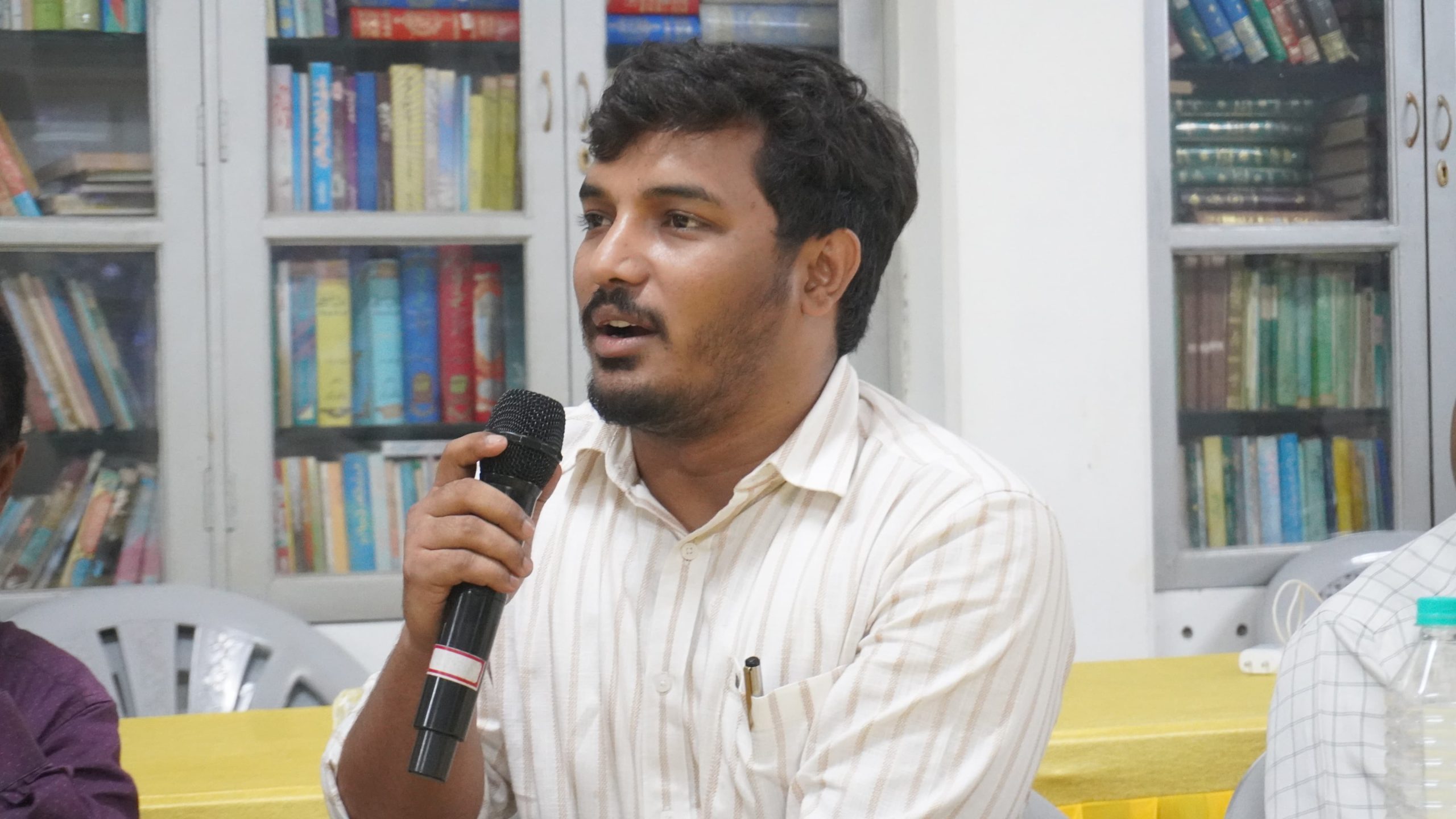 Through this public consultation, Jamaat-e-Islami Hind Karnataka has demonstrated that civil society can play a constructive role in shaping laws that impact public life.
Through this public consultation, Jamaat-e-Islami Hind Karnataka has demonstrated that civil society can play a constructive role in shaping laws that impact public life.
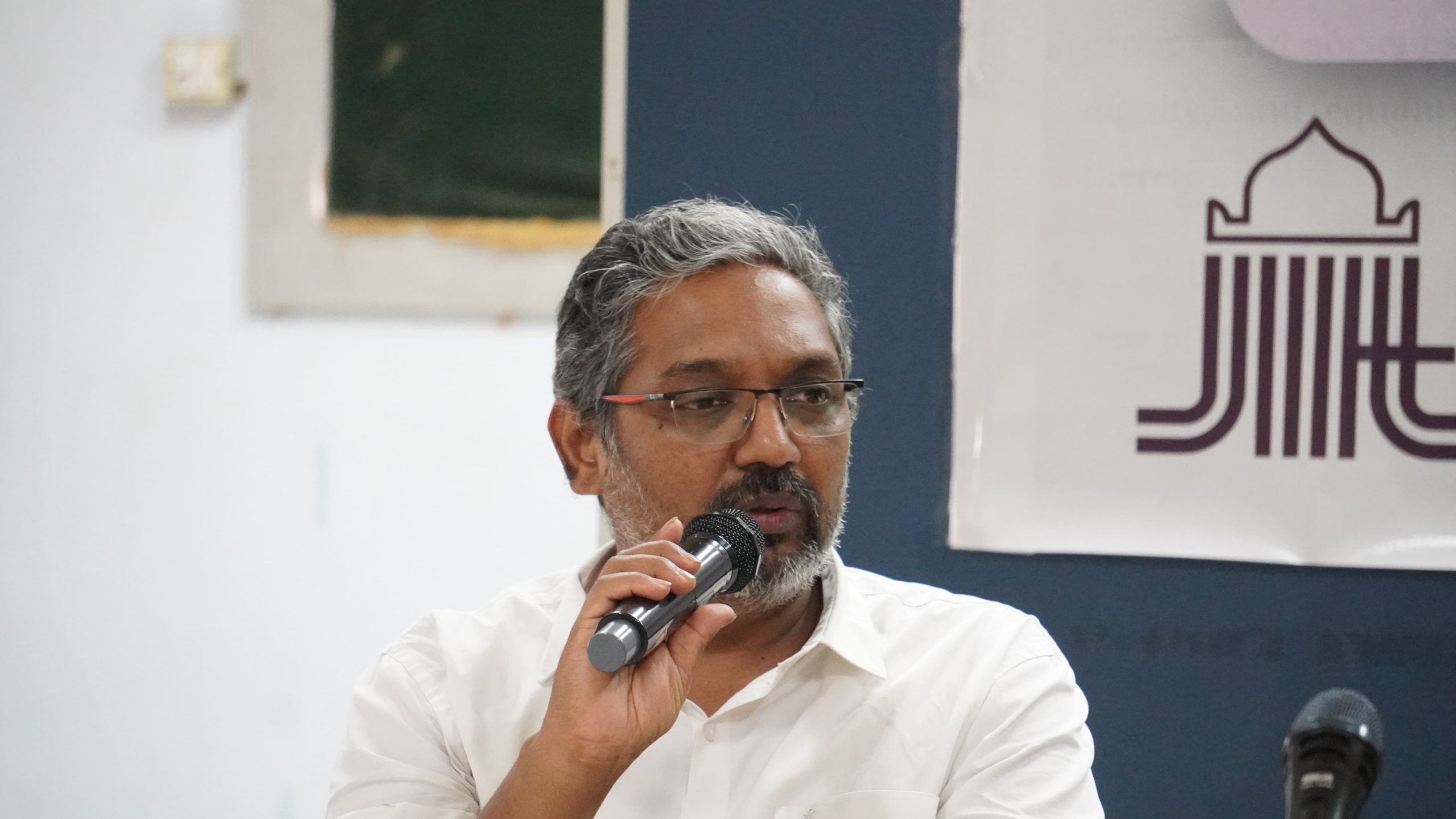 By intervening in the legislative process with openness and public engagement, it has reinforced the principle that laws should serve the people – not stifle their freedoms. Such democratic interventions are essential to ensure that the spirit of the Constitution remains alive and active in the making of public policy.
By intervening in the legislative process with openness and public engagement, it has reinforced the principle that laws should serve the people – not stifle their freedoms. Such democratic interventions are essential to ensure that the spirit of the Constitution remains alive and active in the making of public policy.


